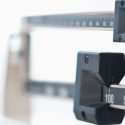Prostate cancer prevention
My health has never been more important to me until I said, “I do” just four short months ago. I want to make sure I am around for my wife and our future kids. I need to make my health a priority in order to keep my vows to my wife.
One of my main focuses is preventing one of the most common cancers among men, prostate cancer. Prostate cancer is the second most common cancer after skin cancer. It is a very slow growing cancer that causes no symptoms until it is in the advanced stage. The American Cancer Society predicts that 220,800 new cases of prostate cancer will be diagnosed in 2015. They also predict that an estimated 27,640 men will die from prostate cancer. I don’t know about you, but I think that’s a big number.
I don’t want to be part of that future stat and, in order to keep myself from being so, I need to reduce my risk. Here’s what I’m planning to do. How about you?
Ways to reduce risk
- Eat a healthy balanced diet.
- Maintain a healthy weight.
- Be physically active.
- Have good communication with your doctor.
- Get screened for prostate cancer. Screenings include a digital rectal exam and a prostate-specific antigen test (PSA), which can help identify cancer in its early stages.
Risk factors for prostate cancer
- Age – chance of having prostate cancer goes up after the age of 50.
- Race – research shows that African American men have double the risk of dying of prostate cancer.
- Family history – the risk of prostate cancer is much higher for men with several relatives who have been affected by it.
- Geography – more common in North America, Australia, the Caribbean, and northwestern Europe.
- Diet – men who eat a lot of red meat or high-fat dairy products with little fruits and vegetables have a slightly higher chance of getting prostate cancer.
Signs and symptoms
- Problems urinating with slow or weak urinary stream
- The need to urinate more often, especially at night
- Blood in the urine
- Trouble getting an erection
- Weakness or numbness in the legs or feet
- Loss of bladder or bowel control due to cancerous tumors pressing on the spinal cord
- Back pain
- Chest pain around the ribs
- Pain in the hips and other bones
Talk to your doctor today about what you can do to help avoid prostate cancer, when and if you should be tested, and if you are experiencing any of the symptoms listed above.




